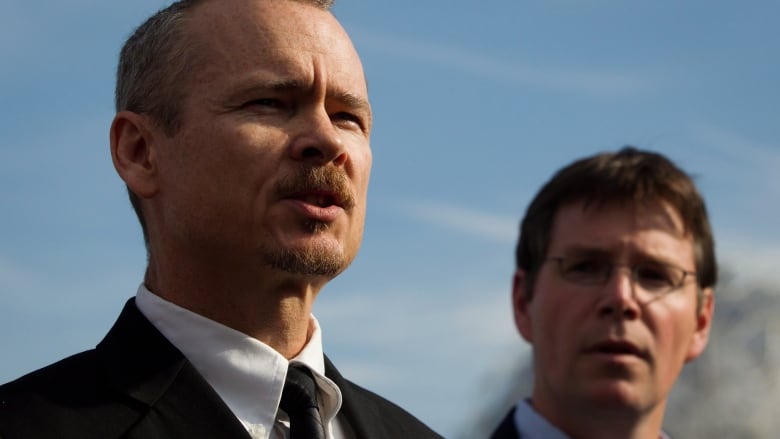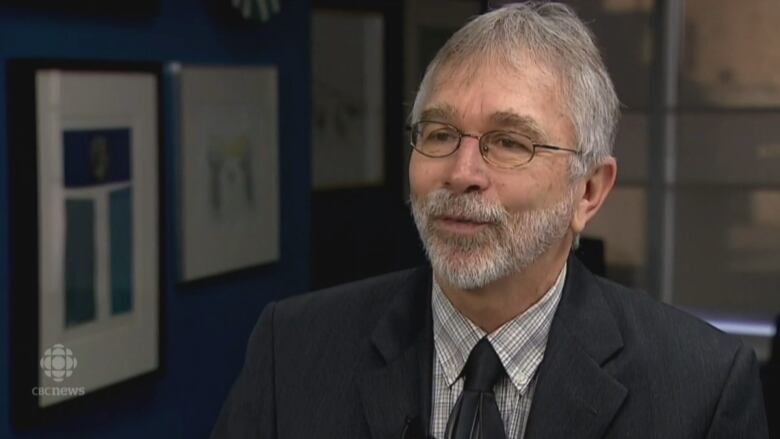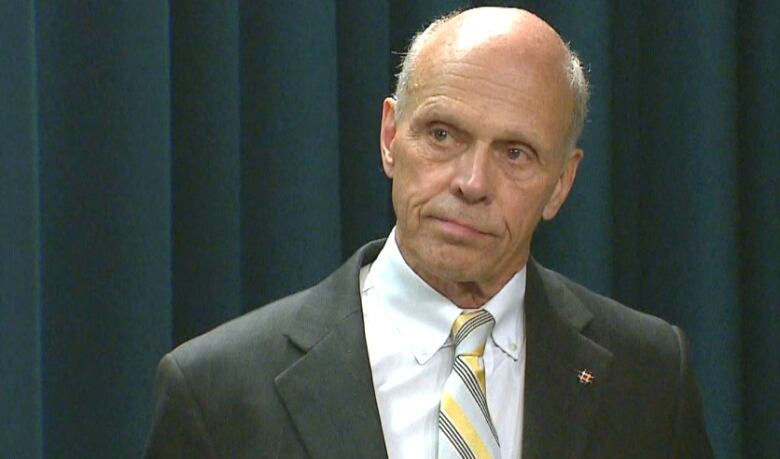Inquiry into anti-Alberta energy campaigns is politically motivated, unlawful: charity
Ecojustice argues inquiry ordered for an improper purpose; asks court to shut it down

A $3.5-million public inquiry into alleged foreign-funded attacks on Alberta's oil industry is a politically motivated abuse of government authority, an environmental law charity argued in court Thursday.
"This is a political gunfight intended to target, intimidate, and harm organizations who hold views that differ from those of the government," Ecojustice lawyer Barry Robinson told Calgary Court of Queen's Bench Justice Karen Horner.
In November 2019, Ecojustice filed a judicial review application of the Public Inquiry Into Funding of Anti-Alberta Energy Campaigns, ordered by the government of Premier Justice Kenney to fulfila campaign promise.
The charity contends the inquiry, led by Calgary forensic accountant Steve Allan, must be shut down because it was created for partisan political purposes, has been tainted by bias from the outset, and is outside the province's legal jurisdiction.
The province's lieutenant-governor formally established the inquiry through a July 2019 order-in-council.
Under provincial law, the lieutenant-governor can only order a public inquiry if it is expedient and in the public interest, and the issue is within Alberta's jurisdiction.
"Surely a public inquiry brought for an improper purpose or in bad faith cannot be in the public interest," Robinson said.
He said the lieutenant-governor's decision to convene the inquiry, at the direction of the UCP government, "was not informed and reasonable, and was in fact brought for entirely political purposes."

Robinson referenced comments made by Kenney, then-justice minister Doug Schweitzerand the United Conserative Party about how the inquiry would "fight back" against certain organizations harming the province's energy sector.
This shows the inquiry is "adversarial," rather than properly intended for independent fact-finding, he said.
He stressed that Kenney publicly stated the inquiry's findings would be used to go after the charity status of organizations his government considered to be enemies of the province's oil and gas industry.
Commissioner's donations, campaigning
Citing legal precedent, Robinson told the court that it is not necessary to prove a commissioner is biased, only that an objective observer would have a perception of bias.
To that end, Robinson cited evidence from the public record about Allan's close political association to both the UCPand now-former justice minister Doug Schweitzer.
As CBC News has revealed, Allan previously campaigned for Schweitzer, donated to his UCP leadership campaign, co-funded a 2018 political reception for Schweitzer at the Calgary Golf and Country Club, and hosted a meet-and-greet for Schweitzer at Allan's home a month before the 2019 provincial election.
Political donations and associations should not disqualify citizens from holding some public positions, Robinson said, but "what it does preclude is that person acting, in short order after being appointed, on a matter that involves the interests of the person they donated to and campaigned for."
Robinson noted that Allan was appointed commissioner on Schweitzer's recommendation, "just four months after hosting a campaign event for Mr. Schweitzer at his home."
Ecojustice maintains the inquiry deals with matters that are squarely in federal jurisdiction, such as interprovincial pipelines and railways, the flow of money into Canada, and the charitable status of organizations governed by the federal income tax act.
Inquiry doesn't target groups: government
Lawyers for the Alberta government and Allan, the inquiry commissioner, have argued the inquiry is a clear exercise of provincial authority and is in the public interest.
"Determination of what is in the public interest and what matters of concern are deserving of a public inquiry are policy decisions that cabinet is entitled and mandated to make," Alberta Justice lawyer Doreen Mueller told court.

Mueller told court that Ecojustice's judicial review application is focused on the order-in-council establishing the inquiry, and so evidence about Allan's political associations, and even Allan's submitted evidence, is not directly relevant to the proceeding.
The decision-maker whose actions are under review is the lieutenant-governor, Mueller argued.
She insisted the inquiry does not identify, or target, any specific organization, and there is no intent to harm or punish any individual or group. She said comments made by politicians have no bearing on Allan's inquiry.
Over deadline and budget
In July 2020, Ecojustice sought an injunction that would have paused the inquiry until a judge could rule on its legal challenge.But Horner dismissed the injunction application, saying there was no evidence the release of information from the inquiry would negatively affect Ecojustice's reputation.
Since it was announced, the inquiry has gone $1 million over budget currently costing $3.5 million and blown past several deadlines. Allan must now submit his final report to Alberta's energy minister by May 31. The province must publicly release the report within three months of its submission.
But even as the government poured more time and resources into the inquiry, it has several times amended its scope and scale, ultimately limiting what the inquiry is expected to yield.
One amendment to the wording in the inquiry's terms of reference hinted at the possibility that foreign funding of anti-Alberta energy campaigns may not have actually happened.
And in a subsequent update to the terms of reference, Allan said he won't be able to fact-check whether statements critical of the province's energy industry are misleading or false.
Recently, the inquiry drew widespread scorn for commissioning reports that critics said were full of climate-change denialism, conspiracy theories, and oil-industry propaganda.
Citing a previous case, Robinson said this case is also about "wrongful state conduct."
"Using the machinery of the state to dissuade dissent cannot be in the public interest," he said. "The public interest of protecting such dissent must outweigh the political purposes of this inquiry."
The two-day hearing continues Friday.












_(720p).jpg)


 OFFICIAL HD MUSIC VIDEO.jpg)
.jpg)



























































































